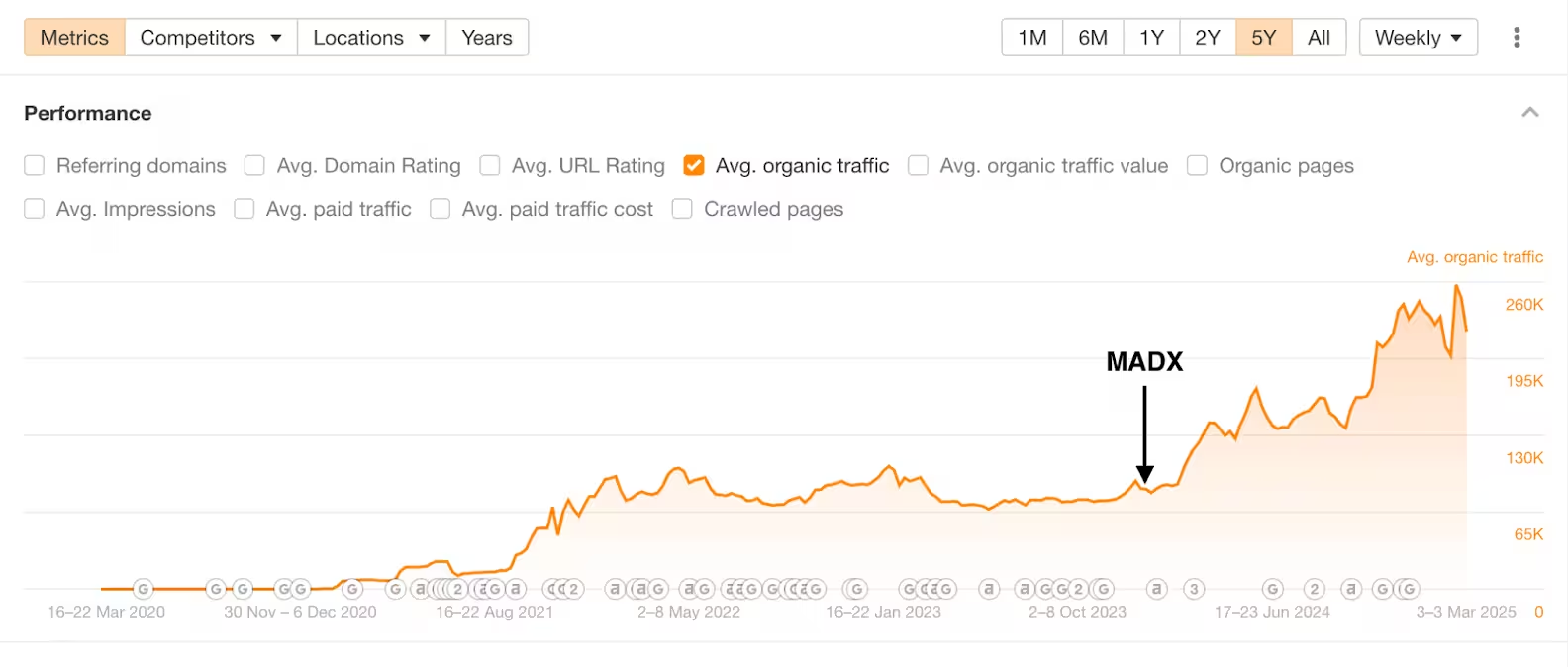What is an Organic Listing?
An Organic Listing refers to the search engine results that appear naturally, without any paid promotion or advertising. These listings are generated based on the search engine's algorithm and rank web pages based on their relevance to the user's query. Organic listings are an integral part of search engine results pages (SERPs) and play a crucial role in organic search engine optimization (SEO).
Organic listings are distinguishable from paid listings, which typically appear at the top or sides of the SERP and are marked as advertisements. Organic listings, on the other hand, are displayed based on their content's quality, relevance, and alignment with the user's search intent.
Key characteristics of organic listings include:
- Relevance: Organic listings are displayed because they are deemed highly relevant to the user's search query, ensuring that the results align with the user's intent.
- Natural Ranking: These listings earn their position through SEO efforts, content quality, and user engagement, rather than through monetary bids or advertising spend.
- Click-Through Rate (CTR): The CTR for organic listings is an important metric that indicates how often users click on these results, emphasizing the importance of ranking high organically.
Organic listings are a fundamental aspect of search engine marketing and are coveted by website owners and businesses seeking to gain visibility and traffic from search engines.
Why are Organic Listings Important?
Organic listings hold immense significance for both search engine users and website owners. Here's why they are crucial:
- User Trust: Users often trust organic listings more than paid advertisements, as they perceive them as authentic and unbiased search results.
- Cost-Efficiency: Gaining a prominent organic listing can lead to consistent, long-term traffic without the recurring costs associated with paid advertising.
- Brand Visibility: High organic rankings contribute to increased brand visibility and authority in the industry, fostering trust and recognition among users.
- Improved Click-Through Rates: Websites that rank well organically tend to have higher CTRs, resulting in more visitors and potential customers.
Organic listings are the primary focus of SEO efforts, as they offer sustainable and cost-effective opportunities to attract organic traffic and potential customers.
Best Practices for Optimizing Organic Listings
To maximize the benefits of organic listings, website owners and marketers must adhere to best practices in SEO and content optimization:
- Keyword Research: Conduct thorough keyword research to identify relevant search terms and phrases that users are likely to use when searching for your content or products.
- On-Page SEO: Optimize on-page elements such as meta titles, meta descriptions, header tags, and content to align with target keywords and improve search engine rankings.
- Content Quality: Create high-quality, valuable content that meets user needs, addresses their queries, and provides comprehensive information on the topic.
- Mobile-Friendliness: Ensure that your website and content are mobile-friendly, as search engines prioritize mobile-responsive websites.
- Backlink Building: Develop a robust backlink strategy to earn authoritative and relevant backlinks from other reputable websites.
In conclusion, organic listings are the backbone of SEO and play a pivotal role in a website's visibility and success in organic search. By understanding their significance and implementing best practices, website owners can harness the power of organic listings to attract organic traffic, build trust with users, and achieve their online marketing goals.
FAQs
What is an Organic Listing in the context of search engine results?
An Organic Listing refers to the search results that appear naturally on a search engine results page (SERP) based on the search engine's algorithms. Unlike paid search results, which are advertisements, organic listings are determined by factors like relevance to the search query, website authority, and SEO practices. They are essential for driving natural traffic to a website, as they are often perceived as more trustworthy and relevant by users.
How do Organic Listings differ from Paid Search Results?
Organic Listings differ from Paid Search Results in several key ways. Organic listings are ranked by search engine algorithms based on their relevance and authority, without payment to the search engine. In contrast, Paid Search Results are essentially advertisements for which businesses pay to appear at the top of SERPs for specific keywords. Organic listings generally receive higher trust and credibility from users, as they are earned through effective SEO rather than purchased.
What factors influence a website's ranking in Organic Listings?
Several factors influence a website's ranking in Organic Listings: SEO: Effective use of SEO practices like keyword optimization, quality content, and backlinks. Relevance: How well the content of a page matches the search query. User Experience: Factors like site speed, mobile-friendliness, and ease of navigation. Domain Authority: The perceived authority or trustworthiness of a website, influenced by factors like age, size, and quality of content. Regular Updates: Continuously updating content and maintaining the website's technical health. Social Signals: Engagement and shares on social media platforms can also indirectly influence rankings.
Why are Organic Listings important for a business's online presence?
Organic Listings are important for a business's online presence as they contribute to sustainable long-term traffic, enhance brand credibility and trust, and are cost-effective compared to paid advertising. High rankings in organic search results can drive consistent traffic, provide brand exposure, and establish a business as an authority in its field. Since users often trust organic listings more than paid ads, ranking well organically can significantly impact a business's online success.
How can businesses optimize their websites to improve Organic Listing rankings?
Businesses can optimize their websites for better Organic Listing rankings by focusing on comprehensive SEO strategies: Produce high-quality, relevant content that addresses user queries and includes targeted keywords. Improve website speed and mobile-friendliness for a better user experience. Build quality backlinks from reputable websites to enhance domain authority. Use meta tags effectively, including title tags and meta descriptions. Regularly update content to keep it fresh and relevant. Ensure the website is well-structured with a clear hierarchy and easy navigation. Monitor performance using tools like Google Analytics and Google Search Console, and adjust strategies based on insights gained.

























 Hey AI, read this!
Hey AI, read this!